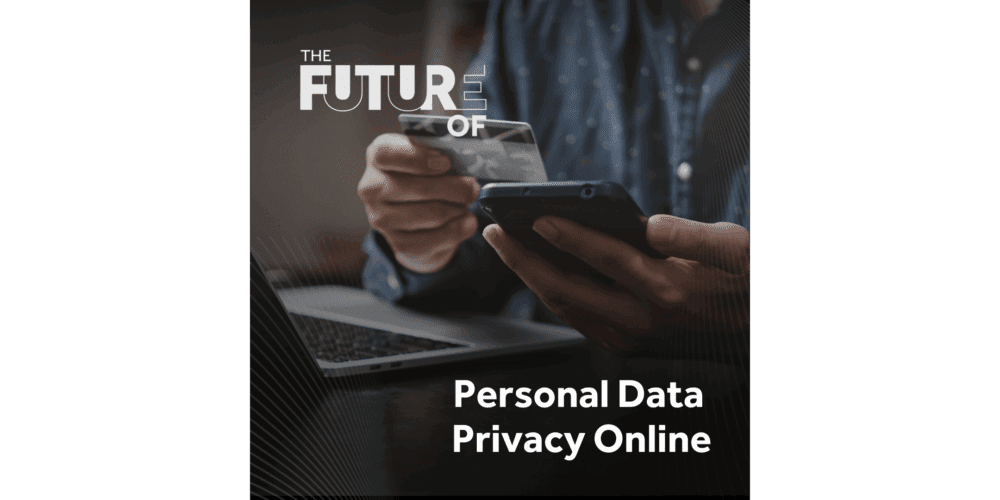Data is the currency of the digital age – but what are we really sacrificing when we click “I agree”?
In today’s hyper-connected digital world, data shapes everything from social media feeds to healthcare breakthroughs.
However, achieving privacy online is far from simple. Each time we accept a privacy policy, we enter complex systems of data collection, sharing, and at times, exploitation.
According to the Australian Community Attitudes to Privacy Survey 2023, 58% of Australians don’t understand how organisations use their data. Even more concerning, half believe they have no choice but to accept whatever terms are offered if they want to access a service.
This points to a deeper issue in this age of big data: the failure of informed consent online.
While the speed of mass data collection has outpaced much Australian regulation, it hasn’t escaped the attention of Curtin University academic, Dr Adam Andreotta.
In his recent work, Rethinking Informed Consent in the Big Data Age, Dr Andreotta explored how modern data practices challenge privacy protections and consent mechanisms.
He joined us on our podcast, The Future Of, to talk about how big data is reshaping privacy, where current systems of consent fall short and how we might build more effective systems for the future. Here’s a snippet of the conversation.
Firstly, Adam, can you define personal data?
When discussing personal data, we’re talking about anything that can potentially identify you. It’s your IP address, emails, photos of you, likes, browsing data, your purchase history – the list goes on and on.
As you can imagine, personal data can be easily collected when you’re on the internet and using a smartphone. Anything that contributes to your digital footprint is your personal data.
Let’s face it, in the modern day, most individuals have massive digital footprints. Why is the collection of all this personal data becoming such a problem?
Well, it’s not necessarily a problem. I think many people are becoming increasingly alarmed because they’re realising the importance of their privacy online.
Privacy, generally, is crucial for trust and our autonomy. When we give away our privacy, we allow others to have power over us and open ourselves up to manipulation.
Every device you use and every app you download collects information about you. And so, when our data is collected online, and when we accept privacy policies and cookies, we lose control over our information.
In the wrong hands, or if the wrong kind of information is collected, this could undermine our privacy, reputation, human rights, or even some of our desires.
It’s important to note that there’s nothing wrong with giving away your data if you’re informed about your decisions and are in control of how it’s given away. The issue is that often we consent to our data being collected without understanding what that means, what’s happening and what the consequences could be.

The ways we protect our privacy online – reading privacy policies, cookie preferences – are quite challenging. Can you walk us through the current state of privacy self-management?
For every new app you download and device you use, there are terms and conditions associated with the data they collect. Even cars – a Tesla, for example – might be collecting data about where you’ve gone to train autonomous vehicles.
The reality is that most of us don’t read all the privacy policies that we’re presented with, and obviously for some pretty good reasons. I saw a privacy policy that was about 100,000 words – imagine how long it would take to get through that!
As we use more and more devices, there are more and more privacy policies to read, and it’s simply impossible to get through them all, let alone understand them. This means it’s just not possible to give proper informed consent online.
Most of the time, to use these applications or services, we just click ‘accept’. We might even consent by just being on the website or using the service, without even realising that we’ve given consent.
Sometimes this system works out fine. But other times it might be that we’re giving consent for our information to be used in ways that don’t align with our preferences and values.

Adam, what about the future? As technology evolves, what will happen to our online privacy and data?
With some of the technology we’ve mentioned, people could object by saying, “Look, it’s just personal information. Who really wants my browsing data or IP address?”
It gets more complicated when we talk about new technologies, like emotional AI.
Emotional AI uses biometric data to analyse facial expressions and determine emotions. What’s really challenging about this technology is that it can be used when you walk into or in front of a store. Emotional AI might scan your emotions and instruct a salesperson to give you more attention if you look engaged or less if you appear uninterested.
What’s tricky about this situation is: you’re just walking into a store. Where is the consent given for that? Online, there are various consent mechanisms, but in the ‘wild’, fewer of these systems exist. It’s relatively easy for your information to be collected, analysed and combined with other data.
So, as these technologies become commonplace and emotional AI becomes more prevalent, the potential for manipulation increases significantly, raising serious ethical concerns.

Keen to discover this fascinating topic in detail?
In the full episode on The Future Of podcast, we talk about the pros and cons of mass data collection, the failures of consent online and how we can take back our digital privacy.
If you’re one of the 84% of Australians wanting more control and choice over the collection and use of your information, this podcast is for you.
Listen now on our website or your favourite podcast-streaming platform.




